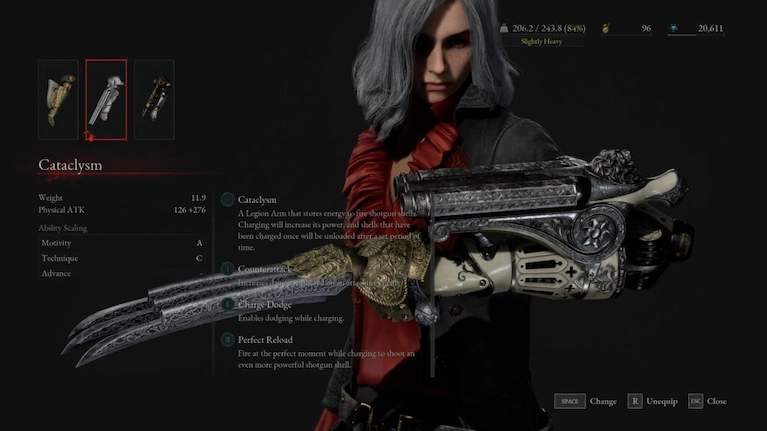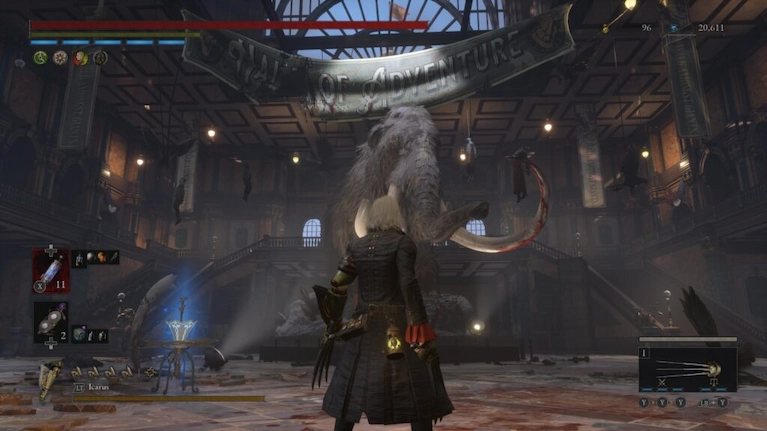Lies of P: Overture isn’t your typical downloadable content. It’s not a quick cash-grab or a few recycled missions with new skins. Instead, it’s a serious attempt to grow and deepen the universe of Lies of P. Where many expansions settle for cosmetic upgrades or short missions, Overture aims higher — narratively, visually, and mechanically.
This DLC adds layers to a story that already stood out for its originality. It dares to tell a meaningful tale, expanding the lore and adding emotional weight to the characters we’ve come to know.
A Tragic Spark: The Story Begins
The story kicks off with a heartbreak — Carlo, Geppetto’s son, succumbs to a mysterious illness and dies. His death is not just a sad moment but the trigger for the dark events that follow.
Lia Florence Monad, a powerful professor and one of the most important figures in the Academy, is overwhelmed by her own illness, the loss of her apprentice Romeo, and the fear that history will repeat itself. These inner battles push her to make a decision that leaves no room for return: she’s determined to save Romeo, no matter what it costs her.
Emotional Depth Through Character Conflict

The emotional core of the story lies in the complex connection between Lia, Arlecchino, and Romeo. Romeo becomes more than a victim—he is the emotional thread that ties Lia and Arlecchino together. Their conflict isn’t just about ideology or power; it’s deeply personal. This layered relationship makes the entire storyline feel more human and intimate.
The tension between these three characters adds heart and stakes to the game. It’s not just a battle of strength, but a battle of grief, love, and regret.
Filling the Gaps Left Behind
One of the most impressive things about Overture is how it fills the narrative holes left by the base game. Events like the Rose Estate incident or the hidden agenda of the Alchemists get the attention they deserve. The DLC reveals more about these elements not only through cutscenes but through careful environmental storytelling and item descriptions.
This approach encourages players to explore and investigate, giving them a sense of ownership over the story. It’s storytelling that rewards curiosity, letting players feel like they’re uncovering secrets that were always just out of reach.
A New Face of Krat: Visual and Atmospheric Shifts
Visually, Overture is a standout. Built on Unreal Engine 4, it’s much more polished than the base game. Lighting, textures, and shadows have all seen noticeable improvement, bringing environments to life with stunning clarity.
But what really sets Overture apart is its shift in tone and setting. Gone are the gothic cathedrals and grand city squares. Instead, players find themselves in abandoned zoos, dark caves, infected labs, and creepy underground prisons. These grim and claustrophobic areas give the game a fresh aesthetic — one that perfectly matches its darker narrative.
The environments are not just backgrounds; they play a vital role in telling the story. Every cracked wall and flickering light contributes to the uneasy feeling that something sinister lies just beneath the surface.
Flawless Technical Performance
In a time when many DLCs launch with bugs and performance issues, Overture is refreshingly smooth. There are barely any frame drops, crashes, or glitches. This technical stability lets players stay immersed in the game, focusing on story and combat rather than frustrating bugs.
This kind of polish is crucial — especially for a DLC trying to stand on its own.
Audio Design That Speaks Volumes
Sound design in Overture is exceptional. The voice actors, especially those playing Lia and Arlecchino, deliver stunning performances. Their emotional range, timing, and delivery make each line hit harder. These aren’t just characters talking — they feel like real people struggling with real pain.
Even the silences in the game carry meaning, thanks to subtle sound choices and pacing.
The Audiograph System
A standout feature is the Audiograph — a tool that plays breathing and voice details in the background during intense scenes. This might sound minor, but it adds incredible depth, making characters feel more alive and their reactions more believable.
Music That Tells a Story
The soundtrack is also a major highlight. Each area has music that fits perfectly, enhancing the atmosphere without overwhelming it. But the most impressive piece is the main theme of Overture — a haunting melody that repeats quietly throughout the game. It seems like background music at first, but eventually, players discover that the tune is actually tied to the emotions and history of three major characters.
This theme becomes more than just a song — it becomes part of the narrative. It’s a beautiful example of how music can carry emotional storytelling weight.
Gameplay Evolves, Not Repeats
Though Overture sticks to the combat structure of the base game, it subtly refines it in meaningful ways.
New Tools, New Tactics
The addition of two new Legion Arms and a good set of new weapons brings more variety and freedom to battles. Players can experiment with different combinations to find their own combat style, making the gameplay feel more personal.
These changes might not seem dramatic at first, but once you dig in, it’s clear that combat is deeper and more flexible than before.
Boss Fights That Leave a Mark
Boss battles are one of Overture’s strongest points. Some are incredibly well-designed and offer complex, satisfying challenges. Even the weaker bosses are solid, but the final boss fight is where Overture truly shines.
Unlike the original game’s somewhat underwhelming final encounter, Overture delivers a climactic, emotional, and mechanically thrilling final boss. It’s a fight that tests your skills, pulls you into the story, and leaves a lasting impression — the kind of ending that makes a DLC unforgettable.
Final Thoughts: A Dark and Beautiful Chapter
Lies of P: Overture proves that a DLC can be more than just extra content — it can be a vital part of the story. With rich character development, improved visuals, strong audio design, and refined gameplay, Overture sets a new standard for what expansions should strive to be.
It’s not just an addition — it’s a deeper descent into a beautifully dark world, and a must-play for anyone who enjoyed the original.
